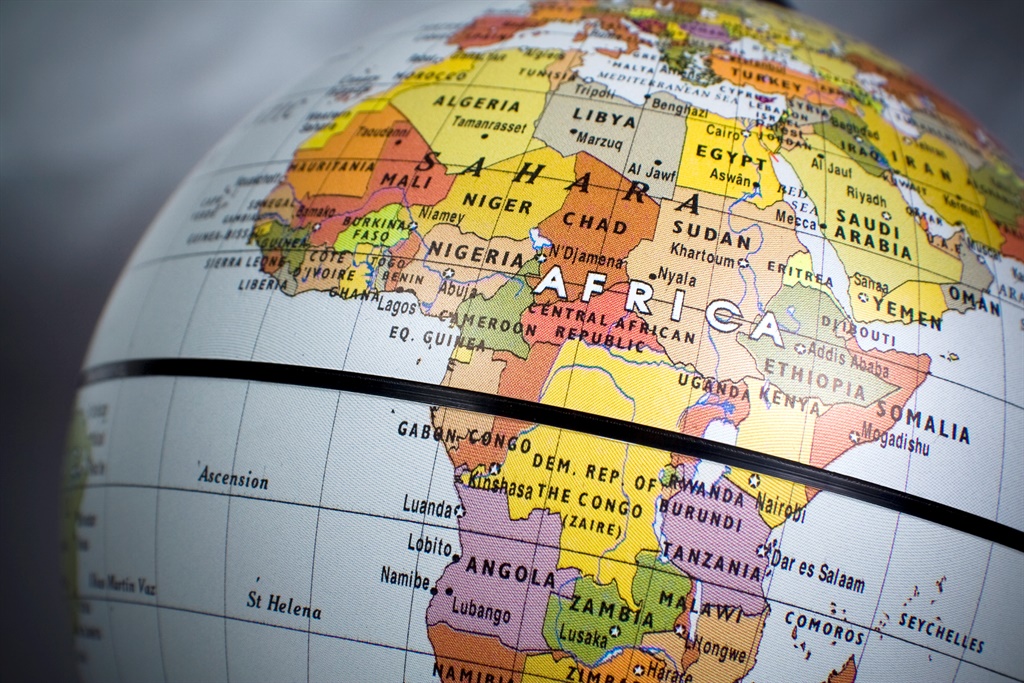
Ultimately, though, the only way to defeat poverty and graduate from aid is greatly to increase Foreign Direct Investment (FDI) - of which there is a vast potential reservoir in the world looking for the right destination, writes Peter Fabricius from the Institute for Security Studies (ISS).
Aid remains among the most important elements of the relationship between the developed world and Africa's least developed countries (LDCs) in particular. Africa has received more aid than any other region, an accumulated total of more than US$2,4 trillion between 1960 and 2018, according to Jakkie Cilliers in his book The Future of Africa.
Yet many observers and analysts believe there has been precious little to show for it. In her 2009 book Dead Aid; Why Aid Makes Things Worse and How There is an Another Way for Africa, the Zambian economist Dambisa Moyo, asked why, despite such large aid, most sub-Saharan countries still "flounder in a seemingly never-ending cycle of corruption, disease, poverty, and aid-dependency."
Her answer was that aid is inherently bad because it creates dependency by removing much of the incentive for African countries to fend for themselves - for example by improving their tax collection systems to earn their own government revenue. It is mostly paid directly to governments and so is too easy to steal, promoting corruption. And it also crowds out investment, including investment from local entrepreneurs.
A different view
Cilliers, chairperson of the Institute for Security Studies (ISS) in Pretoria, does not share Moyo's gloomy view of aid, because he believes aid helps African governments meet the most pressing needs of their people, "... and will remain critical for Africa's low-income countries for at least the next decade."
Aid boosted government revenues in low-income Africa by an "astounding" ten percentage points in 2018, he adds. He notes, for instance, that the US$600 million in health funding from donors to Ethiopia in 2015, accounted for roughly half of the total health spending in the country, boosting the country's development prospects.
Cilliers also points out that, without substantial European Union (EU) assistance, the African Union would not have been able to establish its three (out of an envisioned five) regional brigade-size standby forces for conflict prevention and management in South, West, and East Africa.
The Southern African Development Community's standby brigade is now deployed in Mozambique's northernmost Cabo Delgado province, fighting an Islamic State-affiliated jihadist insurgency.
ALSO READ | Peter Fabricius: Can Africa use technology to leapfrog its huge educational backlog?
Since 2004, the EU has spent more than €3.5 billion to help finance the AU's peace and security efforts, including its vital peace support missions such as the African Union Mission in Somalia (AMISOM) which is keeping the violent extremist group Al-Shabaab at bay.
Evolving nature of aid
These benefits may reflect the evolving nature of aid. Since the publication of Moyo's book, traditional and new donors from the South, civil society organisations, and private philanthropy have together adopted a framework for development cooperation. (i.e aid)
Donors agreed to untie aid, allowing recipients to use their aid dollars to procure from the cheapest suppliers and not those prescribed by donors. They also agreed to channel more aid towards lower-income countries which have the greatest need.
If aid were distributed equally among African countries, it would equate to an average of about 2.5% of GDP. But the aid reforms helped increase aid to low-income countries to about ten percent of GDP — more than 50% on average of government revenue, Cilliers writes. And he adds that, "Aid has a modestly positive effect on growth, with an average internal rate of return of around 10%."
More recently though, Europe's efforts to stem the influx of illegal migrants from Africa and elsewhere has diverted some of its aid focus away from development of the neediest. The EU and its member states are collectively the largest donors, providing about US$20 billion – or half – and the US about 24%, of all annual aid to Africa, Cilliers says. But a major change in the African aid landscape of the 21st Century has been the growing role and influence of China. Much of its economic impact on Africa has been through its purchases of vast quantities of raw materials to feed its burgeoning industries, which fuelled a global commodities super-cycle. China has also become the biggest single country funder and builder of infrastructure projects in Africa, which Western countries have been unwilling to finance. China has spent about US$11.5 billion per annum since 2012 on African infrastructure, Cilliers says.
These include giant projects such Kenya's Standard Gauge Railway line from Mombasa to Nairobi (and eventually onwards), and Ethiopia's Addis Ababa to Djibouti railway. However, much of China's financing of African infrastructure has been through loans and these have sometimes aggravated excessive indebtedness.
Aid for trade
Another important recent evolution in aid has been the allocation of larger proportions of it to promote normal commercial relations. Initiatives like the EU's 2017 External Investment Plan (EIP) and America's 2018 Better Utilisation of Investments Leading to Development (BUILD) Act, provide greater government support for private sector investment in Africa and elsewhere. Donors are also putting more effort into Aid for Trade - which in 2017 absorbed US$13.3 billion of US$59.7 billion of total aid to Africa - to build trade capacity and diversity in poor countries and help economically marginalised groups.
Cilliers notes that in 2020, Africa received US$78 billion in aid, plus US$51 billion in remittances from the diaspora and US$96 billion in foreign direct investment (FDI).
ALSO READ | Peter Fabricius: Playing leapfrog - How far can technology help Africa bypass its developmental backlogs?
He forecasts that on the current path, by 2040, annual aid would have increased to US$124 billion; annual remittances would have dropped to US$41 billion, and annual FDI would have expanded to US$308 billion.
If FDI could be boosted by about 20% a year and remittances by 83% - both feasible - by 2040, while aid remained the same as on the current path (as the appetite for it among donors is not great) this would boost African economies by US$174 billion and government revenues by $47 billion a year in 2040 - and cumulatively increase revenues by $473 billion between 2020 and 2040, Cilliers has calculated
Yet this would only modestly reduce the numbers of the extremely poor, by about 16 million by 2040 he predicts, largely because most of the increased FDI, would go to wealthier countries. Cilliers warns that China's interest in Africa seems to be waning. From a high of $60 billion in aid and loans offered by Beijing to Africa at the 2015 Forum on China-Africa Cooperation (Focac), China's aid slipped to about $40 billion at each of the 2018 and 2021 Focacs.
China has started to become wary of lending money to Africa for fear of pushing countries into debt traps. And it is shifting its own economy away from the industrial hyper-production of the last few decades, so has less need for African commodities.
No end in sight?
Cilliers is no doubt right in his prediction that aid is here to stay, at least for a decade. But should aid be here to stay for at least a decade - with no end in sight? Having to continue receiving aid indefinitely is surely a sign of failure. One would think the objective of aid should be to make itself redundant, to help African aid recipients eventually become self-sufficient.
If so should all aid recipients not be obliged, as a condition for receiving aid, to present a cogent plan, with deadlines, about how and when they will wean themselves off it. That could include timetables for reforming their revenue services and for rising up the World Bank's Ease of Doing Business Index, for example. Theoretically, yes, though it's the poorest citizens who suffer most when governments fail, and so donors feel morally obliged to keep at least some aid flowing regardless of governance.
Ultimately, though, the only way to defeat poverty and graduate from aid is greatly to increase FDI - of which there is a vast potential reservoir in the world looking for the right destination. "FDI boosts economic growth and is key in contributing to knowledge transfer and hence to Africa's economic transformation," Cilliers says.
"If the international donor community really wants to help Africa, it needs to incentivise private investment in Africa through tax benefits, de-risking foreign investment and building African capacity to negotiate, manage and evaluate projects." If the donors don't do that, the ensuing slow growth and poverty will inevitably cast more migrants on their doorsteps.
- Fabricius is an ISS consultant.
To receive Opinions Weekly, sign up for the newsletter here.
*Want to respond to the columnist? Send your letter or article to opinions@news24.com with your name and town or province. You are welcome to also send a profile picture. We encourage a diversity of voices and views in our readers' submissions and reserve the right not to publish any and all submissions received.
Disclaimer: News24 encourages freedom of speech and the expression of diverse views. The views of columnists published on News24 are therefore their own and do not necessarily represent the views of News24.




 Publications
Publications
 Partners
Partners






















